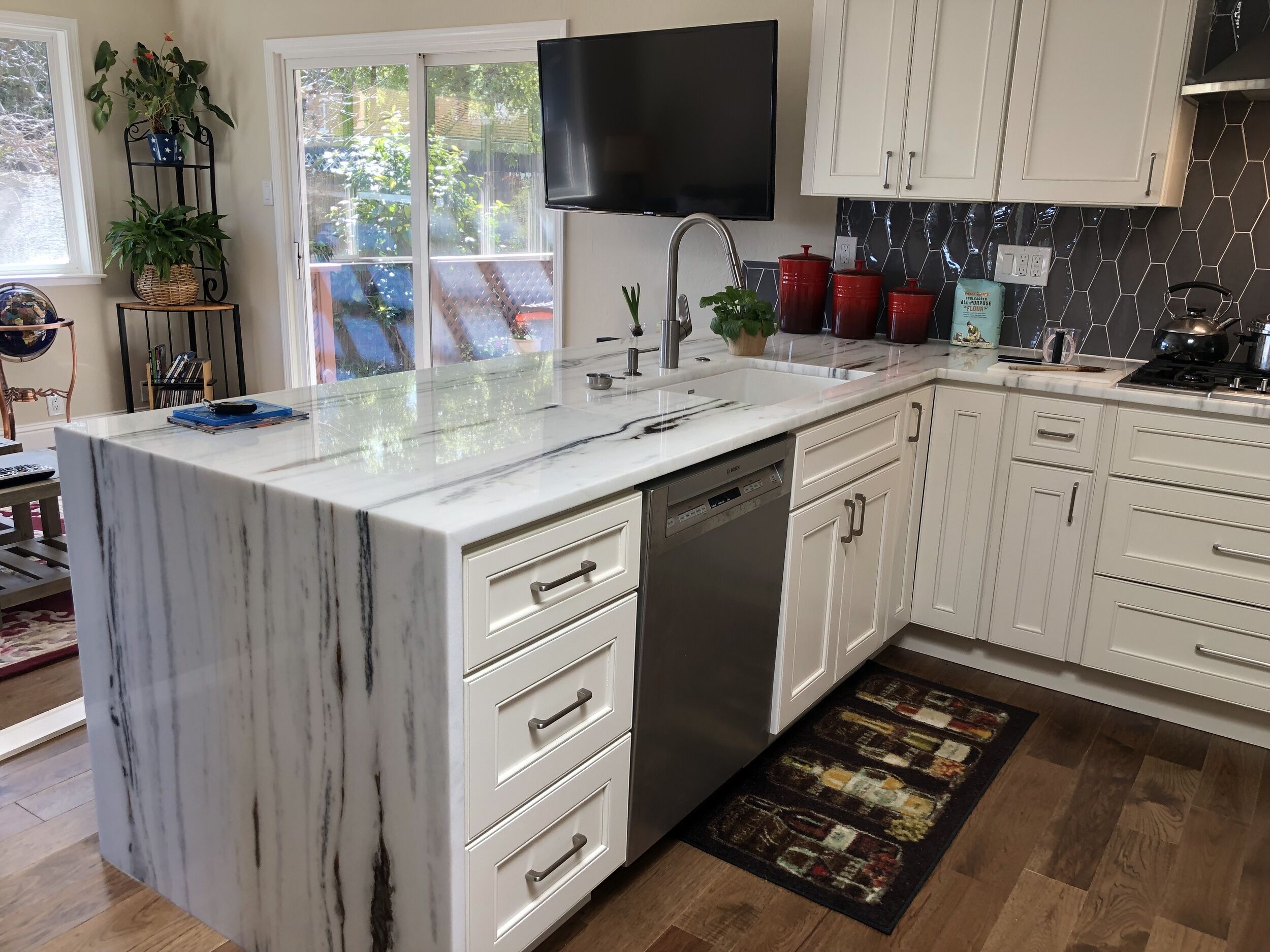When designing a kitchen, choosing the right countertop is crucial, especially if you spend a lot of time cooking. But have you ever wondered what professional chefs, who use their kitchens more than anyone else, prefer for their countertops? Let’s take a look at the materials and features that make certain countertops a top choice for chefs.
1. Durability is Key
Chefs need countertops that can withstand the daily rigors of cooking. From chopping and dicing to placing hot pots and pans, durability is non-negotiable.
Quartz: Known for its durability and low maintenance, quartz is a favorite among chefs. It’s non-porous, meaning it won’t absorb liquids, which is essential for maintaining hygiene. Quartz countertops are also scratch-resistant, which is perfect for the frequent knife work in a professional kitchen.
Granite: Granite is another popular choice for its incredible durability. It’s heat-resistant, so you can place hot pans directly on the surface without worrying about damage. Although granite requires occasional sealing to prevent staining, its toughness and natural beauty make it a top contender.
2. Hygiene Matters
In a professional kitchen, cleanliness isn’t just a preference; it’s a necessity. Chefs prefer materials that are easy to clean and don’t harbor bacteria.
Stainless Steel: This material is a staple in commercial kitchens for a reason. Stainless steel is non-porous, easy to sanitize, and resistant to heat and stains. Although it can scratch and dent, these imperfections are often seen as a badge of honor in a well-used kitchen.
Quartz: Again, quartz shines in this category. Its non-porous nature makes it resistant to bacteria, mold, and mildew, ensuring a sanitary surface for food preparation.
3. Aesthetics with Functionality
While functionality is paramount, chefs also appreciate countertops that bring a sense of style to their kitchens.
Marble: Marble is renowned for its elegance and timeless appeal. It’s especially favored by pastry chefs due to its cool surface, which is ideal for working with dough. However, marble is more prone to staining and scratching, so it requires more care.
Concrete: For those looking for a modern, industrial look, concrete is a great option. It can be customized with different textures and colors, and it’s incredibly durable. However, it can stain and needs to be sealed regularly.
4. Heat Resistance
Given the amount of cooking happening in a professional kitchen, heat resistance is another crucial factor.
Granite: As mentioned earlier, granite is extremely heat-resistant, making it a practical choice for chefs who frequently use hot cookware.
Stainless Steel: Stainless steel countertops can handle high temperatures, making them perfect for busy kitchens where time is of the essence.
5. Maintenance Considerations
Chefs prefer countertops that don’t require too much maintenance, allowing them to focus on cooking rather than cleaning.
Quartz: This engineered stone requires virtually no maintenance, as it doesn’t need to be sealed and is resistant to stains and scratches.
Solid Surface: Materials like Corian are low-maintenance, seamless, and can be easily repaired if scratched, making them another practical option.
6. Cost vs. Benefit
While cost is often a consideration for home cooks, chefs are more focused on the long-term benefits of their countertops.
- Investing in Quality: Chefs often view their countertops as an investment in their craft. While materials like quartz and granite might be more expensive upfront, their durability and low maintenance make them cost-effective in the long run.
Conclusion: Finding the Perfect Balance
When it comes to countertops, chefs prefer materials that offer a balance of durability, hygiene, and functionality, with an added touch of style. Quartz and stainless steel often top the list due to their practicality, but materials like granite, marble, and concrete also have their place in a chef's kitchen.
Ultimately, the best countertop for a chef is one that suits their cooking style, meets their functional needs, and complements the overall design of their kitchen. Whether you’re a professional chef or a passionate home cook, choosing the right countertop can make all the difference in your culinary adventures.

